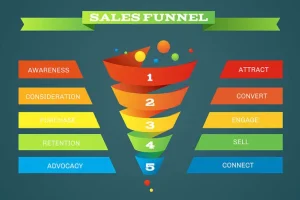
Paying taxes may not be top of mind for most of us, but there are legal and common strategies available that can help reduce their annual tax bill. From accelerating deductions and harvesting losses to maximising tax-advantaged retirement accounts – there are multiple strategies for effectively managing taxes.
Small business owners can take a number of steps to reduce their tax liabilities. Here are a few ideas before the year-end.
1. Take the Right Deductions
Tax planning entails strategizing ways to time income and deductions so as to minimize tax payments. For instance, deferring income if it will fall into a higher tax bracket next year and increasing deductions if expected lower tax brackets this year is key to this goal.
Deductible expenses include medical bills, property taxes, retirement contributions and charitable donations – but you must exercise caution when filing deduction claims because the Internal Revenue Service has specific rules regarding which expenses qualify as tax deductions.
One effective strategy to take is using any “use-it-or-lose-it” money held in flexible spending accounts before the year-end deadline, though remember that due to tax code complexity it may be hard for you to hide income and doing so could put you at risk of an IRS audit.
2. Accelerate Payments
Accelerated payments may be worth exploring as one year-end tax strategy. If your property or state income taxes are due in 2023, paying them now to claim the deduction now could save money in 2023.
However, doing this can be risky. The IRS rules surrounding expenses like this can be complicated and you should avoid overpaying in tax by inadvertently shifting expenses to another year.
As with accelerating contributions to retirement accounts, be careful before increasing them more rapidly than necessary. Doing so might not always make financial sense if your tax bracket remains the same in 2019. Luckily, there are various strategies available for businesses looking to lower their tax liability by carefully timing income and expenses.
3. Bundle Deductions
Tax planning’s purpose is to pay the least possible legal tax liability. It accomplishes this goal through two strategies: deducting income and claiming credits. Deductions reduce how much of your income is subject to taxes while credits help offset it dollar for dollar.
If your tax bracket will increase next year (due to either higher income or taxes), it might make sense to accelerate deductions into 2022. For example, using cash method accounting might allow you to accelerate expenses into this year by sending last invoices before December 31.
However, be wary of attempting to hide income or create artificial deductions that might raise red flags with IRS examination staff.
4. Take the Right Tax Credits
No matter if or when you itemize deductions, it is still beneficial to know which tax credits you qualify for and how to maximize them for your business. Tax credits provide immediate reduction of tax liability on an ongoing basis compared to deductions which only reduce it indirectly.
Implementing strategies designed to delay income and accelerate deductions are easier with the cash method of accounting, which recognizes revenue when received and expenses when paid for.
If you expect to fall into a higher tax bracket next year, it could make sense to accelerate deductions into this year to lower your 2022 tax bill. This could involve making the most out of retirement plan contributions or bundling charitable deductions as soon as possible – though only if this higher rate will only be temporary.
5. Take the Right Actions
Tax laws can be complex and intimidating, but there are numerous strategies you can employ to minimize your tax liabilities. These include deferring income, accelerating deductions and taking advantage of tax credits.
Business owners can reduce their taxable profit by prepaying expenses that will become due in the following year, such as property taxes or insurance premiums, such as those due for property tax payment or premium payments. But to know whether this strategy is best requires professional guidance.
Investors can lower their capital gains taxes by selling losing investments before the end of the year; this practice is known as “tax loss harvesting.” Furthermore, making contributions to tax-deferred savings accounts and charities before December 31 can significantly lower tax liabilities overall.








